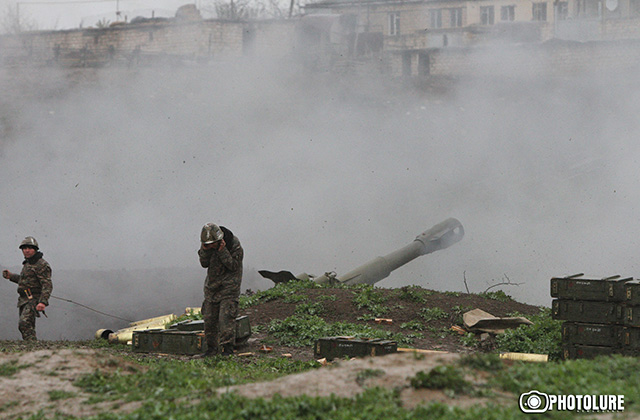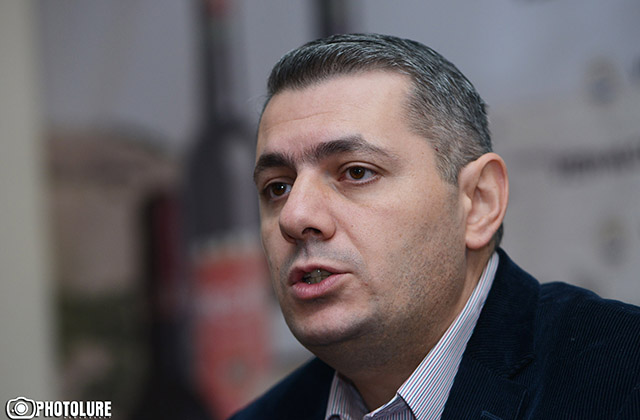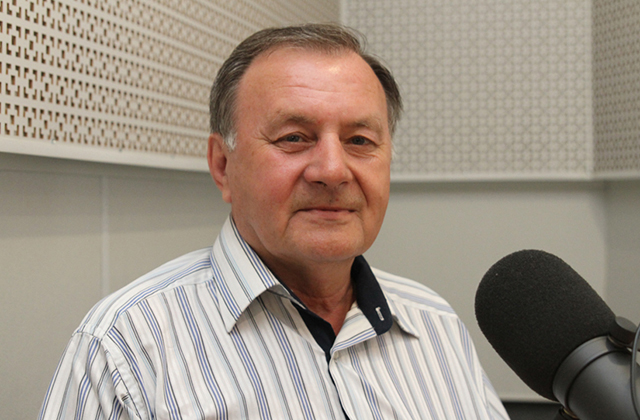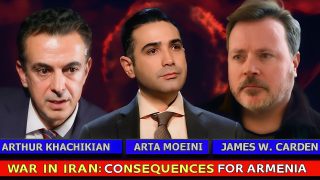Threat for another April war: what justifications does Azerbaijan seek?

The negotiation deadlock generated in NK conflict peaceful settlement process succeeded to crack neither OSCE MG, nor states marked with mediation efforts.
Moreover, it’s more sobering, when OSCE MG Co-Chairs touch upon war in their statement. “There is no alternative to a peaceful solution to the conflict and that war is not an option,” the Co-Chairs mentioned in the statement issued recently. The Armenian side doesn’t have hopes in this issues either: Shavarsh Kocharyan, Deputy Foreign Minister of Armenia, stated that negotiations exist only in the context of implementing one of the missions of the Co-Chairs, which is maintenance of this fragile ceasefire, blocking resumption of military operations, which is under doubt on account of Azerbaijan’s approaches.
The new information campaign launched by the Azerbaijani side particularly recently is worth attention and additional analysis, essence of which is accusing the Armenian side of intensively instigating clashes. In the period of the last month reportages were being actively prepared from the contact line by Azerbaijani pro-government media outlets as if about military operations—cannonade, fire against villages and etc., in case, when Azerbaijani state propaganda keeps the society apart from the contact line and detailed coverage of the situation.
“The Defense Ministry of Nagorno Karabakh informed the Azerbaijani Defense Ministry’s report on the Nagorno Karabakh forces making a sabotage infiltration attempt overnight February 21 and retreating by suffering losses is a false report,” Defense Ministry of Artsakh stated, adding that by spreading such disinformation, the Azerbaijani propaganda machine tries to somehow justify the fact it bombarded Nagorno Karabakh positions overnight with artillery fire. Parallel to this, statements by Azerbaijani officials full with constant toughening rhetoric continue.
Azerbaijani FM Elmar Mammadyarov in an interview with RIA Novosti reflecting to NK conflict stated, “Everybody understands that today the non-existent status quo doesn’t satisfy anyone, perhaps, except the Armenian side. Of course, we aren’t content that the territories occupied for 20 years, unfortunately, are liberated only militarily.” And Azerbaijani president Ilham Aliyev these days said tension on the contact line is Azerbaijan’s internal affair.
Sergey Minasyan, Deputy Director of the Caucasus Institute, political analyst, told “168 Hours” that the Azerbaijani side, prior to instigating tension on the contact line, attempts to introduce justifications. Naturally, in his words, it turns out that from Azerbaijani perspective the most productive option is exactly that—the Azerbaijani side attempts to create a beneficial field for propaganda before initiating another escalation.

“I don’t consider that wide-scale war may be touched upon, however, the developments, which may be comparable with the April War, aren’t excluded, due to the very reason that the Azerbaijani side undertakes steps to justify itself both for internal and external auditorium,” S.Minasyan said.
Upon invitation of Russian Foreign Minister Sergey Lavrov, Armenian FM Edward Nalbandian was in Moscow since February 21, who met with his Russian counterpart. The key topic of the meeting was NK conflict settlement. Earlier, Maria Zakharova, Russian Foreign Ministry spokeswoman, told reporters, “Something interesting is anticipated at negotiations between Lavrov and Nalbandian,” Zakharova said.
Ivan Volinkin, Ambassador Extraordinary and Plenipotentiary of Russia to Armenia, told TASS that on the whole, Russia appears in favor of returning peace and stability in Transinistria.
“We don’t see any alternative to the peaceful settlement, together with MG partners we’ll continue exerting efforts toward approaching positions of the sides,” he said. During Nalbandian-Lavrov press conference the Ministers reflected to NK conflict peaceful settlement, expressing hope that progress will be recorded in negotiations.
In his turn, Sergey Lavrov stressed if we are really responsible to find mutually acceptable principal decision, for the time being there is no alternative to the MG format.
Stanislav Tarasov, Russian political scientist, told “168 Hours” that Moscow is continually active on all possible platforms, attempting to support resumption of negotiations. However, currently, in his assessment, deadlock has been established, exit from which is rather difficult on account of the inclination not to go to concessions and unpredictability of international situation of Armenia and Azerbaijan. According to him maybe certain progress is recorded in the process, when the policy of Trump administration in the South Caucasus will be clear, and the Ukrainian crisis enters a simpler phase, where positions of Russia and the USA have sharpened.

In the future visit of Azerbaijani FM to Russia is anticipated. According to information provided by Russian Foreign Ministry, preparation of the visit was discussed during the meeting of Grigory Karasin, Russian Deputy Foreign Minister, and Ambassador of Azerbaijan to Russia. By these attempts, basically for the second time Moscow attempts to approach FMs of Armenia and Azerbaijan, as the previous attempt, which was actively touched upon by Azerbaijani FM, failed as Nalbandian-Lavrov-Mammadyarov meeting wasn’t held.
Stansilav Tarasov, despite Russia’s efforts, doesn’t have great expectancies from these ministerial negotiations, which he considers natural on account of the situation established in the world. However, at the same time, he doesn’t consider that the conflict will enter a new phase of wide-scale clashes, as currently Azerbaijan doesn’t intend, which is observed from Azerbaijan-EU “flirtation”, in case of which Azerbaijan won’t attempt to undertake new clashes.
To the question what should be anticipated from the efforts by the Russian side, developing toward approaching positions of FMs, Sergey Minasyan said it’s necessary to understand what’s going on by Russia’s efforts, however, within OSCE MG wider circles it’s an experience to establish trust mechanisms on the contact line. He assures that it doesn’t yet refer to serious negotiations, as without that zero point the next stage—negotiations, are possible.
“However, we also know that the Azerbaijani side refuses the proposal of installation of trust mechanisms, perfectly realizing that negotiation documents with their different formulations, let them be Russian version of Kazan document, options proposed by the Minsk Group, involve the provision of “clarification of NK status through referendum”, which is unacceptable for Azerbaijan. Last time real negotiations have been recorded in 2011 in Kazan, before it, perhaps the only serious attempt, which failed due to Azerbaijan, was Key West negotiations of 2001 between Robert Kocharyan and Heydar Aliyev,” Minasyan said. The latter doesn’t observe an exit from the existent deadlock.
He considers at best under the pressure of international community we can acquire progress regarding installation of trust mechanisms on the contact line. “However, it’ll also be a fragile version, in the upcoming period I don’t observe any serious opportunities in real negotiations,” he said.
Earlier Grigory Trofimchuk, Russian political scientist, told “168 Hours” that Meetings on the level of FMs have always been, and will be as usual. However, currently he considers those meetings don’t resolve anything. “Moscow has one scenario—not allowing military tension of the conflict, war, as overcoming two wars far from one another (Donbas, Karabakh) is less probable for any participant,” he said.
By Araks Martirosyan

























